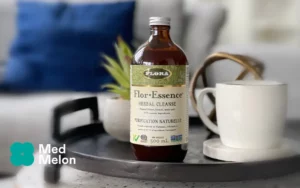Scientific Names of Ginkgo:
Ginkgo biloba L. [Fam. Ginkgoaceae]
Forms:
Ginkgo leaf standardized extract
Traditional Usage:
– Allergies
– Altitude Sickness
– Alzheimer’s Disease
– Anti-aging
– Anti-inflammatory
– Antioxidant
– Blood Platelet Stickiness
– Brain Health
– Breathing Conditions
– Cholesterol
– Dementia
– Edema
– Free Radical Related Diseases
– Hangover
– Headache
– Lowering LDL Cholesterol
– Macular Degeneration
– Memory Loss
– Mental Functioning Improvement
– Parkinson’s Disease
– PMS-related Water Retention
– Poultice
– Premenstrual Syndrome Symptoms
– Raynaud’s Disease
– Schizophrenia
– Sinusitis
– Sores
– Tinnitus
– Ulcers (gastric)
– Varicose Veins
– Vascular Disorders
– Vertigo
– Water Retention
– Wounds
Overview:
Ginkgo, Ginkgo biloba L. [Fam. Ginkgoaceae], is the most well researched herbal medicine existing, having over four hundred scientific studies backing several proprietary standardized extracts of the leaf in the past 30 years. Hundreds of studies have proven ginkgo’s efficacy for treating memory loss, vascular disorders and other age-related conditions. Ginkgo, considered a living fossil, is the most ancient tree species known on Earth, dating back more than 300 million years. The seeds were used in Traditional Chinese medicine to treat respiratory illnesses but the leaves were not used until the 1950s when German researchers uncovered their healing properties. The leaves contain flavonoid glycosides and unique diterpenes known as ginkgolides that are potent inhibitors of platelet activating factor (PAF). It’s anti-PAF activity counters allergies, asthma and inflammation. Clinical studies have shown that ginkgo extracts exhibit therapeutic activity in a variety of disorders including Alzheimer’s disease, failing memory, age-related dementias, poor cerebral and ocular blood flow, tinnitus, congestive symptoms of premenstrual syndrome, vertigo and the prevention of altitude sickness. A 1992 Lancet review of 8 out of 40 double-blind controlled trials on ginkgo for treating memory loss concluded positively for ginkgo. The German Commission E approves ginkgo for treating memory deficits, disturbances in concentration, melancholy conditions, dizziness, vascular dementia and vascular restriction in the legs known as intermittent claudication. It is the most widely prescribed herb in Germany with over 6 million prescriptions filled out in 1995 alone. German physicians routinely prescribe ginkgo for treating Alzheimer’s disease and other severe forms of memory and mental function loss. Several human studies on young people also confirm ginkgo’s benefits for improving mental functioning, as well as for treating eyesight disorders. A recent study found ginkgo to improve the effectiveness of medications used for schizophrenia and reduce their side effects, including antidepressant-induced sexual dysfunction.
Active Ingredients:
Ginkgo leaf standardized extracts (35-67:1) contain not less than: 24% ginkgo-flavone glycosides including glycosides of quercetin, kaempferol and isorhamnetin; 6% terpene lactones including ginkgolides A, B and C as well as bilobalide. Extracts should contain no more than 5ppm of toxic ginkgolic acid and related alkylphenol constituents.
Ginkgo leaf contains: acacetin; Alanine; amentoflavone; diterpenes including ginkgolides A, B, C and J; sesquiterpene bilobalide; bilobetin; calcium oxalate; flavonoids including apigenin; kaempferol, quercetin, isorhamnetin, luteolin and tricetin; biflavones including bilobetin, ginkgetin, sciadopitysin and isoginkgetin; catechins; epicatechin; epigallocatechin; gallocatechin; proanthocyanidins; procyanidins; sterols; 6-hydroxykynurenic acid; ginnon; glucaric acid; heptacosanol; alpha-hexenal; ipuranol; isoginkgetin; mannan; methoyxbilobetin; nonacosane; nonacosanol; octacosanol; pentosans; pinitol; prodelphinidin; quinic acid; sequoyitol; succinic acid; tricetin;uroshiols; and wax. [Source: James A. Duke 1992. Phytochemical Constituents of GRAS Herbs and Other Economic Plants. CRC Press, Boca Raton, FL]. Note: Procyanidins, the most common class of condensed proanthocyanidins, consist of chains of catechin and/or epicatechin units linked by 4-8 or 4-6 bonds.
Suggested Amount:
The recommended dosage for ginkgo is 120-240mg daily, given in three separate dosages of 40 to 80 mg each. The 50:1 extract is standardized to contain 24% ginkgo-flavone glycosides and 6% terpene lactones.
Drug Interactions:
Ginkgo extracts have significant blood thinning properties and beneficial cardiovascular effects and therefore may affect existing therapies for thrombosis prevention, hypertension, hypotension and cardiac disorders. Seek the advice and supervision of a qualified medical doctor if you suffer from any of these conditions and are using aspirin or warfarin as a blood thinner. Ginkgo extracts should not be used to replace existing therapies for cardiovascular disease.
Contraindications:
Ginkgo extracts have significant cardiovascular effects and therefore may affect existing therapies such as for thrombosis prevention, hypertension, hypotension and cardiac disorders. Seek the advise of a qualified medical practitioner before taking ginkgo products in these cases; dosages for blood thinners may be reduced.
Side Effects:
When taken accordingly, it is ideal for long-term use as it generally produces no side effects. Above recommended dosages, ginkgo may cause diarrhea, irritability and restlessness. The minor rare side effects reported in clinical trials using commercial preparations of ginkgo have included stomach or intestinal upsets, headache and allergic skin reaction. Levels of toxic ginkgolic acid and related alkylphenol constituents are kept under 5 parts per million, as certified by manufacturers.
References:
Blumenthal M, Goldberg A, Brinckmann J 2000. Herbal Medicine: Expanded Commission E Monographs. Copyright American Botanical Council. Publ. by Integrative Medicine Communications, 1029 Chestnut Street, Newton, MA 02464. Pp. 160-169.
Holstein N. 2001. [Ginkgo special extract EGb 761 in tinnitus therapy. An overview of results of completed clinical trials]. Fortschr Med 2001 Jan 11; 118(4): 157-64. [Article in German].
McKenna DJ, Jones K, Hughes K. 2001. Efficacy, safety, and use of Ginkgo biloba in clinical and preclinical applications. Altern Ther Health Med 2001 Sep-Oct; 7(5): 70-86, 88-90.
Wettstein A. 2000. Cholinesterase inhibitors and Gingko extracts–are they comparable in the treatment of dementia? Comparison of published placebo-controlled efficacy studies of at least six months’ duration. Phytomedicine. 2000 Jan; 6(6): 393-401.
Zhou D, Zhang X, Su J, Nan Z, Cui Y, Liu J, Guan Z, Zhang P, Shen Y. 1999. The effects of classic antipsychotic haloperidol plus the extract of Ginkgo biloba on superoxide dismutase in patients with chronic refractory schizophrenia. Chin Med J (Engl) 1999 Dec; 112(12): 1093-6.




